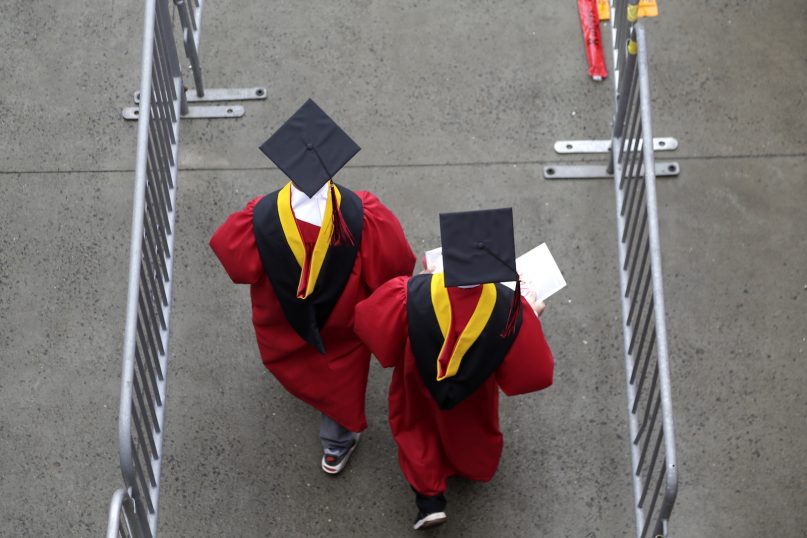(RNS) — We write as a collective of scholars with a deep and sustained engagement with the religious, cultural, social and political traditions of historical and contemporary India. We became a collective — despite the diversity in our individual specializations and concerns — to highlight a common threat that is being waged against academic freedom and against freedom of speech and thought in the U.S.: Hindutva ideology, otherwise known as Hindu nationalism.
Hindutva is a form of hate little known in most of North America. Distinct from the Hindu faith, Hindutva is a political ideology that dates back roughly 100 years, to the time when British rule in India was being contested. But in recent years, Hindutva has been instrumental in transforming India’s once pluralistic and secular democracy into an ethnonationalist state defined by Hindu supremacy and human rights violations.
RELATED: For Indian American Hindus, loving India doesn’t mean holding back our criticism
Hindutva’s transformation is not for India alone. Hindutva is, and has been for some years, a global phenomenon. Nor is it restricted to the political realm. Stifling speech in Kashmir, in Delhi and elsewhere in India, those who promote the harmful and discriminatory ideology of Hindutva have targeted academics, activists and students who research and teach about South Asia and its history.
The Hindu right has attacked U.S.-based scholars for the past few decades, attempting to dissuade and discredit academic research, and the assaults have intensified recently. In the past year, one historian of South Asia here had his parents “swatted”; another scholar battles a lawsuit by a Hindu group that is a subject of her current research. Others in the field have received violent threats, sometimes prompting police involvement.
Such hate seeks to undermine our genuine, nuanced research, which presents a vision of South Asian history, religions and cultures as multifaceted and pluralistic. In so doing our scholarship undercuts Hindutva’s project to remake India and Indian history.
Fighting back in the name of academic freedom, we formed the South Asia Scholar Activist Collective. Our group comprises scholars, activists and students of South Asian studies and adjacent fields based in North America. We ground ourselves on the twin pillars of a belief in humanities scholarship and a commitment to progressive, inclusive politics.
In an environment in which right-wing forces threaten to erode both knowledge and diversity, which we hold equally dear, we seek to offer each other solidarity and to educate both university communities and the public about our struggles.
Our first act as SASAC is to publish the Hindutva Harassment Field Manual, which contains resources for targets, allies, students and employers who find themselves subjected or witnesses to a Hindutva-led assault.
The manual defines Hindutva and explains how its political ideology is distinct from the broad-based faith tradition of Hinduism. It covers common features of Hindutva attacks, including how such assaults are often coordinated and how Hindutva hate frequently intersects with other prejudices, including misogyny and casteism.
Lastly, it addresses the misappropriation of the language of diversity, decolonization and education by the Hindu right with the aim of promoting homogeny through misinformation.
RELATED: Our critics’ attempts to silence us are harming all Hindu Americans
Some of our members have written before about how the Hindu right uses ideas designed to deconstruct bias to achieve the opposite. But the Hindu right has also made bad-faith claims of bias as a smokescreen to protect its members’ own extreme bias. It is a delicate matter to explain this method of shielding odious politics from criticism, but we refer you to the field manual as a start.
Our very existence as members of SASAC puts us at risk. Many of us know those risks all too well from prior brushes with Hindutva hate that have imperiled us and our families. In an effort to balance security concerns with our desire, as academics and activists, for transparency, we name some of the members of our collective with their permission. Both those named and those unnamed stand in solidarity and with the conviction that knowledge and true inclusion are values well worth defending.
(Ananya Chakravarti, Purnima Dhavan and Manan Ahmed are associate professors of history at Georgetown University, the University of Washington, Seattle and Columbia University, respectively. Supriya Gandhi and Dheepa Sundaram are assistant professors of religious studies at Yale University and the University of Denver, respectively. Audrey Truschke is an associate professor of South Asian history at Rutgers University-Newark. Simran Jeet Singh is a visiting professor at Union Theological Seminary. The views expressed in this commentary do not necessarily reflect those of Religion News Service.)





